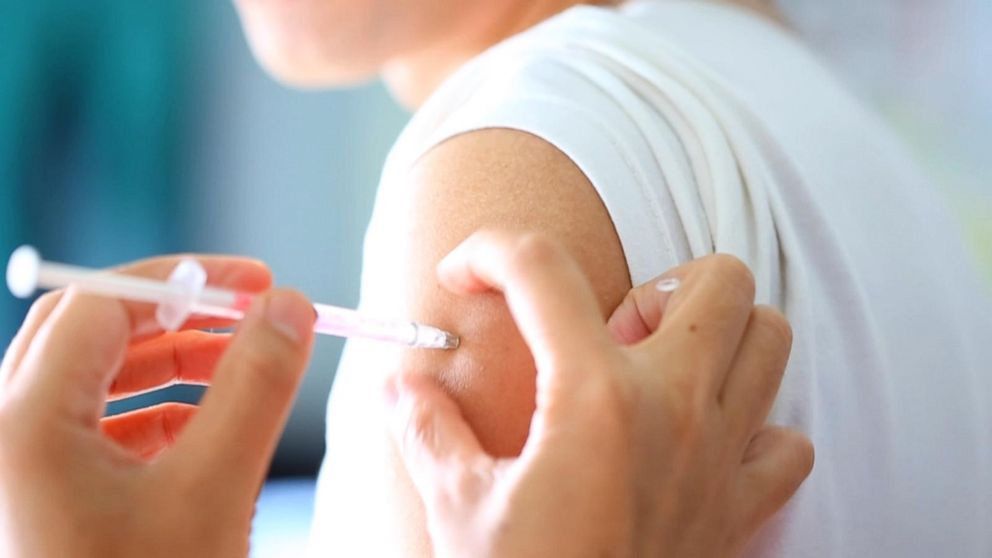
by BSPGHAN | Apr 7, 2021 | News
Covid19 Vaccination update 7th April 2021
(replaces advice on BSPGHAN website on 31st January 2021)
Today, April 7th, 2021, the Joint Committee on Vaccination and Immunisation (JCVI) has changed their clinical advice on Covid 19 vaccines for those aged under 30 years.
Adults aged 18 to 29 who do not have an underlying health condition that puts them at greater risk from Covid should be offered an alternative to the Astra Zeneca vaccine if one is available.
The MHRA advised that-
- side-effects were “extremely rare” – and more work was going on to identify if the Astra Zeneca vaccine was causing blood clots.
- People who have had their first dose of the AstraZeneca vaccine should still get their second dose.
- Only those who suffered one of these rare blood clots after the first dose should not get vaccinated.
- People with blood disorders that leave them at risk of clotting should discuss the benefits and risks of vaccination with their doctor.
- The JCVI today said that they have not made a decision yet (on vaccine advice) on those aged under 18 years.
The Pfizer/BioNTech vaccine is authorised for use in individuals aged 16 years and over, and the Oxford/AstraZeneca vaccine is authorised for individuals aged 18 years and over.
Also see that here that the RCPCH updated their advice on 29th March 2021, for paediatricians on children and young people and the COVID-19 vaccination programme https://www.rcpch.ac.uk/news-events/news/message-paediatricians-children-young-people-covid-19-vaccination-programme
This advice may be updated in light of the announcement today.
We are now in the first phase of the programme during which young people (aged 16 years and over) with specific clinical vulnerabilities will be offered vaccination.1 ( Based on JCVI advice, individuals aged 16–65 years in at-risk groups are eligible for immunisation in Phase 1 of the programme).
The Green Book says: “Children and young people have a very low risk of COVID-19, severe disease or death due to SARS-CoV-2 compared to adults and so COVID-19 vaccines are not routinely recommended for children and young people under 16 years of age. Children under 16 year of age, even if they are CEV, are at low risk of serious morbidity and mortality, and, given the absence of safety and efficacy data on the vaccine, are not recommended for vaccination.” 2
While this is the case, vaccinations should not be offered to children and young people who fall outside the categories advised by the JCVI and the Green Book.
The only other group identified by the Joint Committee on Vaccination and Immunisation (JCVI) and the Green Book3 that may be considered for the vaccine during phase 1 are:
- older children (aged 12 years and over) with severe neuro-disabilities and recurrent respiratory tract infections who frequently spend time in specialised residential care settings for children with complex needs.
Such vaccinations would be considered unlicensed use.4 Paediatricians should discuss the benefits and risks and limited safety data with children, young people and their parents/guardians. Any vaccination would need to be authorised by a prescriber (usually a doctor). We would expect that this discussion would take into account:
- the frequency and severity of respiratory infection, and
- the history of hospital admissions, particularly the risk of or previous admissions to paediatric intensive care due to respiratory tract infections.
It is important to stress that at this time the JCVI consider that there are no data to support use of the vaccine in younger age groups or other clinical groups.
Sue Protheroe
BSPGHAN President April 7th 2021

by BSPGHAN | Mar 28, 2021 | News
Dear members
I hope this email finds you all well.
I trust that you are looking forward to our BSPGHAN Annual Meeting 27-29th April. If you already registered for January, there’s no need to re-register for April. A reminder that accepted abstracts will be published in Frontline Gastroenterology.
I hope that you are making regular use of your access to the journal and enjoying the brilliant educational material that is accessed via our members login page?
Please see Highlights for Members – Publishing Papers to Impact on Practice for March 2021 sent from the Editor in Chief, Professor Mark Beattie.
Best wishes
Sue BSPGHAN President.
Dear Colleagues
I wanted to highlight some of our recent published content that I thought would be of interest
The gut microbiome: what every gastroenterologist needs to know
https://fg.bmj.com/content/12/2/118
Getting to grips with sarcopenia: recent advances and practical management for the gastroenterologist
https://fg.bmj.com/content/12/1/53
Diagnostic ileocolonoscopy: getting the basics right
https://fg.bmj.com/content/11/6/484
Refeeding syndrome : physiological background and practical management
https://fg.bmj.com/content/11/5/404
British Society of Gastroenterology (BSG)-led multisociety consensus care bundle for the early clinical management of acute upper gastrointestinal bleeding
https://fg.bmj.com/content/11/4/311
Also online first
How to manage a high-output stoma
https://fg.bmj.com/content/early/2021/03/22/flgastro-2018-101108
Short bowel syndrome in infancy: recent advances and practical management
https://fg.bmj.com/content/early/2020/12/16/flgastro-2020-101457
Gut-focused hypnotherapy for children and adolescents with irritable bowel syndrome
https://fg.bmj.com/content/early/2020/11/22/flgastro-2020-101679
Exit strategies from the COVID-19 lockdown for children and young people receiving home parenteral nutrition (HPN): lessons from the BSPGHAN Intestinal Failure Working Group experience
https://fg.bmj.com/content/early/2020/10/26/flgastro-2020-101598
Eosinophilic oesophagitis: recent advances and practical management
https://fg.bmj.com/content/early/2020/09/06/flgastro-2019-101313
Check out the journal – lots of other excellent content across gastroenterology, endoscopy, hepatology and nutrition
https://fg.bmj.com/
Follow us on twitter https://twitter.com/FrontGastro_BMJ
Check out the blog https://blogs.bmj.com/fg/
Listen to our regular podcasts https://soundcloud.com/bmjpodcasts/sets/frontline-gastroenterology
Check out the instructions for authors – send us your best work – pre submission enquiries welcome https://fg.bmj.com/pages/authors/
Mark Beattie
Professor RM Beattie
Consultant Paediatric Gastroenterologist
Honorary Professor of Paediatric Gastroenterology and Nutrition
Editor in Chief Frontline Gastroenterology
Mark.beattie@uhs.nhs.uk
https://fg.bmj.com/
@FrontGastro_BMJ

by BSPGHAN | Jan 20, 2021 | News
Dear members
Children who are CEV & vaccination advice
Following our involvement in the development of the College’s advice on children and young people who are clinically extremely vulnerable, I would like to highlight the College’s recent statement on the COVID-19 vaccination programme.
As you will be aware, the Joint Committee on Vaccination and Immunisation (JCVI) has advised that those who are clinically extremely vulnerable (CEV) and aged 16+ should be vaccinated as part of priority group 4, alongside those aged 70-74. JCVI’s advice is available here. The College supports JCVI’s approach on vaccine prioritisation, and we’d encourage you to follow that. It is essential that the programme is guided by evidence and we expect to see more safety and efficacy data gathered in the next few months that will inform vaccination strategies for groups not covered by this first phase (such as children and young people under 16 who are CEV).
The RCPCH also wanted to flag with you that it has recently come to our attention that, following the introduction of lockdown in England on 4 Jan, all those who are CEV and on the NHS Digital shielded patient list in England (adults, children and young people) have been sent a letter from the DHSC advising them to shield. This letter also refers to the vaccination programme but does not make it clear that those aged under 16 are not in the priority groups in the first phase. Contrary to what is said in the letter, it is not expected that children and young people under 16 who are CEV will be invited for vaccination by mid-February 2021. The RCPCH have raised this unfortunate miscommunication issue with DHSC and NHS England and asked them to look into it.
Sue
BSPGHAN President

by BSPGHAN | Jan 18, 2021 | News
BSPGHAN Council are delighted to announce that we have consolidated an affiliation with Frontline Gastroenterology. FG is an official publication of the British Society of Gastroenterology and is a companion journal to Gut and BMJ Open Gastroenterology. Frontline Gastroenterology publishes articles that accelerate adoption of innovative and best practice in the fields of gastroenterology, hepatology and clinical nutrition. Frontline Gastroenterology is especially interested in articles on multidisciplinary research and care, focusing on both retrospective assessments of novel models of care as well as putative future directions of best practice. The journal also publishes articles in the domains of clinical quality, patient experience, service provision and medical education.
This arrangement offers an exciting opportunity for BSPGHAN members to receive Free access to the online publication as a benefit of membership.
Access is via the secure member area on the BSPGHAN website- after logging in, click on the Frontline Gastroenterology link to access the journal. If you have any problems accessing this, please email us at webmaster@bspghan.org.uk.




